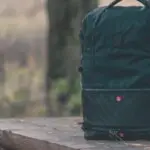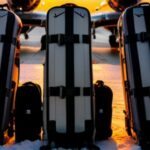Regarding traveling, travel safety should always be a top priority. Whether embarking on a solo adventure or traveling with loved ones, taking necessary precautions can ensure a secure journey and provide peace of mind.
In this comprehensive guide, we will explore essential tips and strategies to enhance your travel safety. From planning and preparation to on-the-go precautions, we’ve covered you with expert advice and valuable insights.
So, let’s dive in and discover the secrets to a worry-free travel experience.
Table of Contents
1. Research Your Destination: Knowledge is Power
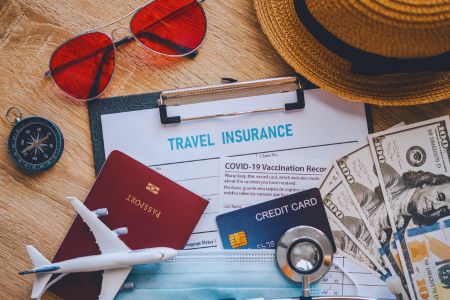
Before embarking on your journey, conducting thorough research about your destination is crucial. Understanding the local culture, customs, and potential safety concerns will empower you to make informed decisions and minimize risks.
Consider the following aspects when researching your destination:
- Check the official travel advisories and warnings issued by your government.
- Familiarize yourself with local laws, customs, and traditions.
- Research the political and social climate of the country or region you plan to visit.
- Stay informed about ongoing conflicts or civil unrest that may affect your safety.
- Learn about the local healthcare system and identify reputable medical facilities.
2. Secure Accommodation: Your Home Away from Home
Choosing a secure and reliable accommodation is vital for your travel safety. Follow these tips to ensure a safe stay:
- Read reviews and check the safety ratings of potential accommodations.
- Opt for well-established hotels or reputable guesthouses.
- Verify that your room has proper locks and a secure safe for your valuables.
- Request a room located on higher floors for added security.
- Use door wedges or travel alarms to enhance the security of your room.
- Avoid sharing your room number or personal information with strangers.
3. Travel Insurance: Protection in Unforeseen Circumstances
Travel insurance acts as a safety net in case of unforeseen events. Consider these points when selecting a travel insurance plan:
- Ensure your insurance covers medical emergencies, trip cancellations, and lost belongings.
- Read the policy carefully to understand the coverage, exclusions, and claim procedures.
- Carry a digital or physical copy of your insurance policy and emergency contact numbers.
- Familiarize yourself with the process for filing insurance claims while traveling.
4. Packing Smart: Essential Items for Safety
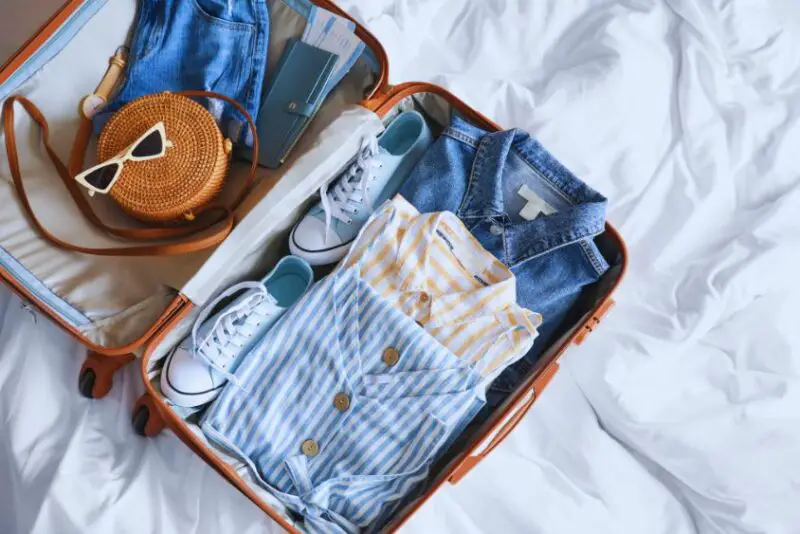
When packing for your journey, include these essential items to prioritize your safety:
- A well-stocked first aid kit with necessary medications and supplies.
- Copies of important documents, such as passports, visas, and travel insurance.
- A portable charger and power bank to stay connected in case of emergencies.
- A reliable travel lock to secure your luggage.
- A money belt or hidden pouch to keep your valuables discreetly.
- A flashlight or headlamp for navigating in low-light situations.
- Hand warmer if you travel to cold countries.
Related: How To Pack Light For Business Travel.
5. Money Matters: Handling Finances Securely
Managing your finances securely while traveling is crucial. Here are some tips for handling money matters:
- Use cash, credit cards, and travel cards for financial flexibility.
- Avoid carrying excessive amounts of cash and keep it securely hidden.
- Notify your bank about your travel plans to ensure card transactions are smooth.
- Keep a record of your card details and emergency contact numbers in a secure location.
- Be cautious when using ATMs and ensure the surroundings are safe before withdrawing cash.
6. Health Precautions: Staying Healthy on the Go
Maintaining good health during your travels is essential for a safe and enjoyable experience. Follow these health precautions:
- Consult with a healthcare professional before your trip to ensure you are up to date on vaccinations.
- Pack a basic medical kit with essential supplies, including bandages, antiseptics, and pain relievers.
- Carry mosquito repellent to protect against vector-borne diseases.
- Stay hydrated and consume safe bottled water to avoid waterborne illnesses.
- Practice good hygiene by washing hands regularly and using hand sanitizers.
7. Transportation Safety: Getting Around Safely
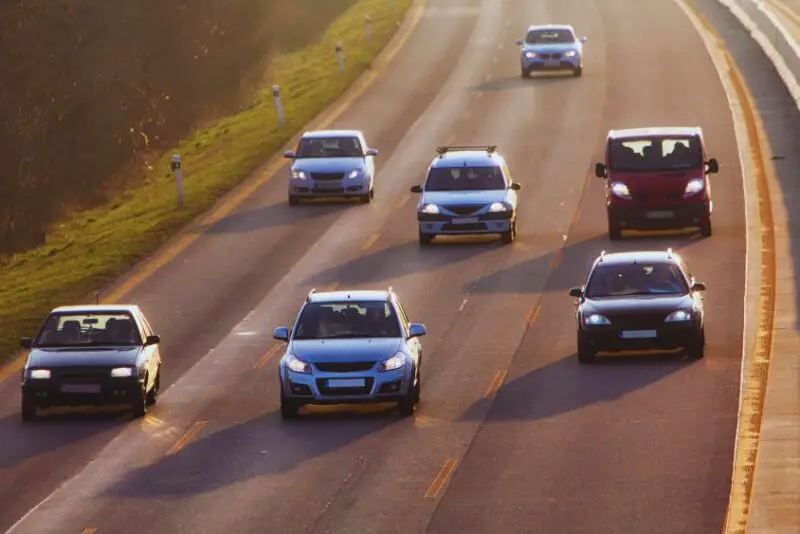
Whether traveling by air, train, bus, or car, prioritizing transportation safety is crucial. Consider the following tips:
- Research the safety records and reputations of transportation providers.
- Follow the safety instructions provided by airlines and other transportation operators.
- Fasten your seatbelt in vehicles that offer this safety feature.
- Secure your luggage and personal belongings to prevent theft or loss.
- Be cautious when using public transportation, especially during peak hours.
8. Communication: Staying Connected and Informed
Maintaining communication while traveling is vital for staying informed and seeking assistance. Here’s how to stay connected:
- Purchase a local SIM card or ensure your international roaming is activated.
- Install communication apps on your phone to make calls and send messages via the Internet.
- Share your itinerary with a trusted friend or family member.
- Stay updated with local news and weather reports for any potential disruptions.
- Keep important contact numbers readily available, including emergency services and the embassy.
9. Cultural Awareness: Respecting Local Customs
Respecting the local customs and traditions of your destination not only promotes cultural exchange but also enhances your safety. Consider the following:
- Research and understand the cultural norms, etiquette, and dress codes.
- Dress modestly when visiting religious or conservative sites.
- Be mindful of your behavior and avoid activities that may be offensive or disrespectful.
- Learn a few basic phrases in the local language to communicate and show respect.
10. Personal Security: Protecting Yourself and Your Belongings
Tzowla Anti-Theft Bag (See on Amazon)
Ensuring personal security is essential to minimize the risk of theft, scams, or other unfortunate incidents. Follow these tips:
- Be aware of your surroundings and trust your instincts.
- Avoid displaying valuable items openly, such as expensive jewelry or electronic devices.
- Use secure lockers or safes to store your valuables when not in use.
- Carry a small bag or anti-theft backpack with sturdy straps to deter pickpockets.
- Be cautious when accepting food, drinks, or invitations from strangers.
11. Emergency Preparedness: Be Ready for the Unexpected
Being prepared for emergencies can make a significant difference in your travel safety. Consider these emergency preparedness tips:
- Familiarize yourself with emergency exit routes in your accommodation.
- Carry a compact emergency kit with essential items like a flashlight, whistle, and basic medical supplies.
- Save the local emergency numbers in your phone and know how to access emergency services.
- Share your emergency plan with your travel companions and establish meeting points.
- Stay calm and follow the instructions of local authorities during emergencies.
Related: Backpacking In the Rain: A Comprehensive Backpacker’s Guide.
12. Traveling with Children: Ensuring Their Safety
When traveling with children, their safety should be a top priority. Here are some tips for a secure journey with kids:
- Keep a close eye on children, especially in crowded areas.
- Use child-friendly accommodations and transportation services.
- Pack necessary items like medication, comfort objects, and appropriate clothing.
- Teach children about personal safety, including not talking to strangers.
- Establish clear communication and meeting points in case of separation.
Related: Best Backpacks For Moms (For Traveling).
13. Solo Travel Safety: Tips for Independent Adventurers
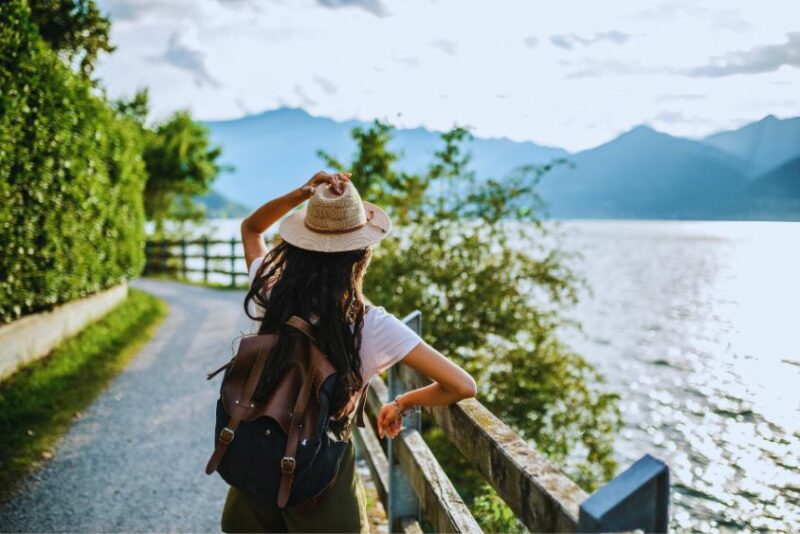
For those embarking on solo adventures, these safety tips are especially important:
- Share your itinerary and contact details with someone you trust.
- Research the safety of your destination and avoid high-risk areas.
- Be cautious when disclosing personal information to strangers.
- Trust your instincts and avoid situations that make you feel uncomfortable.
- Connect with other travelers or join group tours for added safety.
14. Local Assistance: Seek Help When Needed
In unfamiliar surroundings, knowing how and where to seek assistance is crucial. Follow these tips:
- Identify the location of your country’s embassy or consulate in your destination.
- Carry a list of emergency contact numbers, including local authorities and medical facilities.
- Ask hotel staff or locals for recommendations on trustworthy services or assistance.
- Use reputable tour guides or travel agencies for organized excursions.
- Connect with fellow travelers or online communities for local insights and recommendations.
Related: List of embassies from the U.S. Department of State.
15. Travel Scams: How to Avoid Common Pitfalls
Awareness of common travel scams can save you from falling victim to fraudsters. Stay vigilant with these tips:
- Be cautious of unsolicited offers or overly friendly strangers.
- Avoid sharing personal information or financial details with unknown individuals.
- Double-check prices, bills, and receipts to prevent overcharging or scams.
- Be wary of distraction techniques used to steal your belongings.
- Research common scams at your destination and educate yourself on how to avoid them.
16. Cybersecurity: Protecting Your Digital Identity
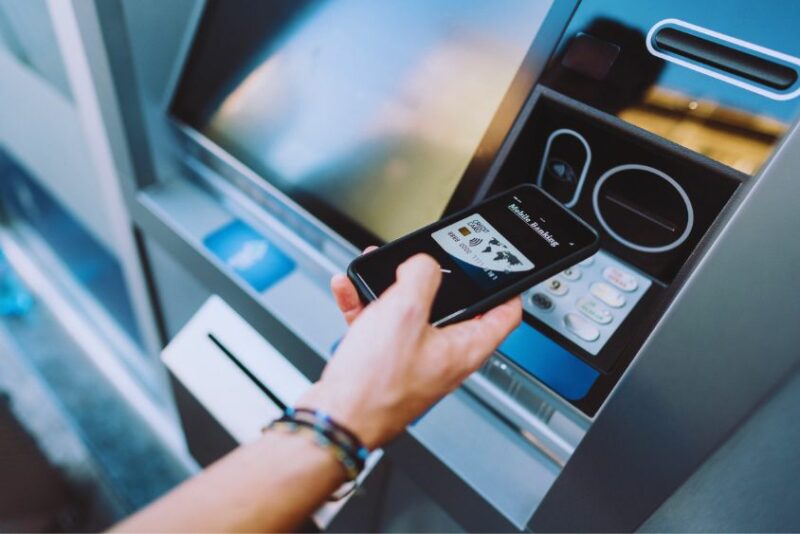
In today’s digital age, protecting your online presence is as important as physical safety. Follow these cybersecurity tips:
- Use strong and unique passwords for your devices and online accounts.
- Avoid using public Wi-Fi networks for sensitive transactions or accessing personal information.
- Install reliable antivirus software on your devices and keep them updated.
- Be cautious when sharing travel updates or posting about your whereabouts on social media.
- Enable two-factor authentication for added security.
17. Natural Disasters: Being Prepared for Mother Nature’s Fury
When traveling to areas prone to natural disasters, being prepared is crucial for your safety. Consider these tips:
- Research the common natural disasters that occur in your destination.
- Familiarize yourself with evacuation routes and emergency shelters.
- Pack necessary items such as a waterproof bag, whistle, and emergency food and water supplies.
- Stay informed about weather conditions and heed warnings from local authorities.
- Follow evacuation orders and instructions during natural disasters.
18. Social Media Safety: Sharing Wisely
While sharing your travel experiences on social media can be fun, it’s important to do so safely. Follow these social media safety tips:
- Adjust your privacy settings to control who can view your posts and personal information.
- Avoid posting real-time updates about your location or travel plans.
- Be cautious when accepting friend requests or interacting with strangers online.
- Consider sharing your travel experiences after returning home to avoid alerting potential thieves.
- Be mindful of the content you share to avoid offending local customs or laws.
19. Traveling during Pandemics: Staying Safe and Informed
During a pandemic, additional precautions are necessary to ensure your safety and the safety of others. Consider these tips:
- Stay updated on travel advisories and restrictions related to the pandemic.
- Follow hygiene protocols, including wearing masks and practicing proper hand hygiene.
- Maintain social distancing measures and avoid crowded places.
- Carry essential items like hand sanitizers, disinfectant wipes, and face masks.
- Be prepared for potential changes in travel plans and have alternative options available.
20. Traveling with Pets: Ensuring Their Comfort and Well-being
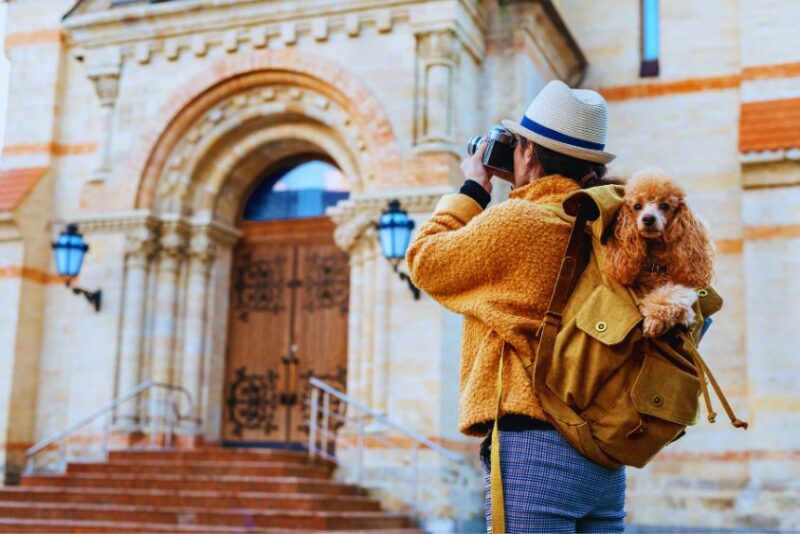
If you’re traveling with your furry friends, their safety and well-being should be a priority. Consider these tips:
- Research pet-friendly accommodations and transportation options.
- Carry necessary documentation, including vaccination records and pet identification.
- Pack familiar items such as toys, blankets, and food to keep pets comfortable.
- Ensure your pets are secure in appropriate carriers or harnesses during travel.
- Be mindful of local regulations and restrictions regarding pets in public spaces.
21. Environmental Responsibility: Preserving the Beauty of Destinations
As responsible travelers, we must protect the environment and preserve the beauty of our destinations. Consider these eco-friendly travel tips:
- Respect wildlife and their habitats, maintaining a safe distance and not disturbing their natural behavior.
- Dispose of waste properly and recycle whenever possible.
- Use eco-friendly products and reduce single-use plastics.
- Support local businesses that prioritize sustainability and conservation efforts.
- Educate yourself and others about the importance of sustainable travel practices.
22. Local Laws and Regulations: Know Before You Go
Understanding and respecting the local laws and regulations of your destination is essential for your safety. Consider these points:
- Research the legal requirements for entry, visas, and permits.
- Familiarize yourself with local laws, customs, and cultural sensitivities.
- Follow traffic rules and regulations when driving or using local transportation.
- Avoid engaging in illegal activities or purchasing prohibited items.
- Consult with your embassy or consulate for specific legal information and assistance.
FAQ
What are some essential items to pack for travel safety?
Some essential items for travel safety include a first aid kit, copies of important documents, a portable charger, a travel lock, a money belt or hidden pouch, and a flashlight or headlamp.
How can I ensure the safety of my belongings while traveling?
To ensure the safety of your belongings, you can use secure accommodations with locks and safes, carry a small bag with sturdy straps, and be cautious of your surroundings and potential theft opportunities.
What should I do in case of a medical emergency while traveling?
In a medical emergency, while traveling, it’s important to have travel insurance that covers medical emergencies. You should also carry a well-stocked first aid kit and know the contact information of local medical facilities and emergency services.
How can I protect myself from travel scams?
To protect yourself from travel scams, avoid unsolicited offers, avoid sharing personal information or financial details with unknown individuals, double-check prices and bills, and educate yourself about common scams at your destination.
What are some cybersecurity tips for traveling?
Some cybersecurity tips for traveling include using strong and unique passwords, avoiding public Wi-Fi networks for sensitive transactions, installing reliable antivirus software, and being mindful of the content you share on social media.
What should I do in case of a natural disaster while traveling?
In case of a natural disaster, while traveling, it’s important to familiarize yourself with evacuation routes and emergency shelters, pack necessary supplies, stay informed about weather conditions, and follow instructions from local authorities.
Conclusion
Traveling can be a wonderful and enriching experience, and prioritizing travel safety is essential for a secure journey. By conducting thorough research, making informed decisions, and following the tips in this article, you can enhance your travel safety and enjoy your adventures with peace of mind.
Remember to stay vigilant, trust your instincts, and always prioritize your well-being and that of your fellow travelers.
Have a safe and memorable journey!







